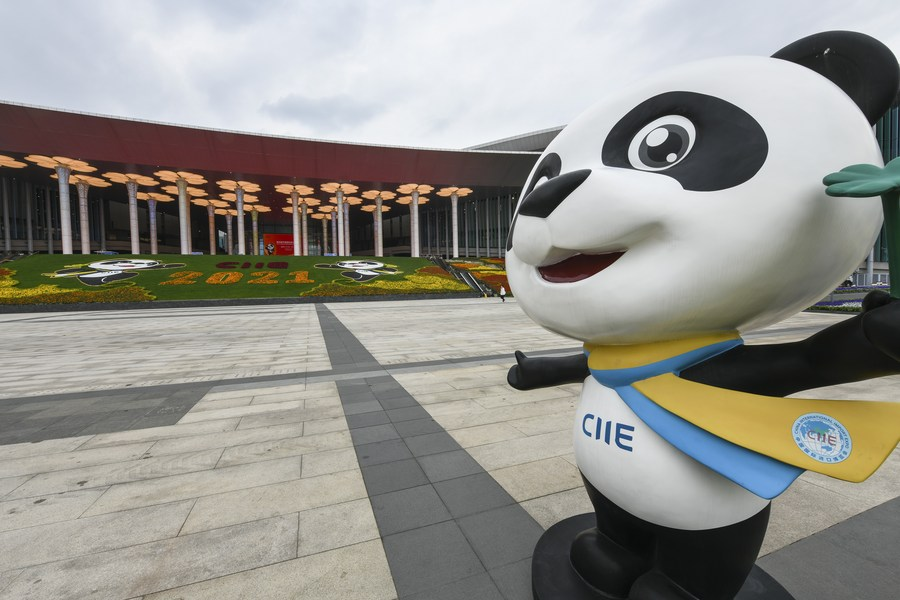CAIRO, Nov. 8 (Xinhua) -- From Syrian olive oil to Turkish coffee and Israeli hi-tech equipment, companies from the Middle East are passionately promoting their products at the ongoing China International Import Expo (CIIE) in Shanghai, with high expectations for increasing their market presence.
Nearly 3,000 businesses from 127 countries and regions are participating in the world's first import-themed national-level expo, whose fourth edition ends on Nov. 10.
IDEAL PLATFORM
"The CIIE is without a doubt the best platform to promote our technology and our company," said Ivan Melnikov, CEO of Beer Itzhak Energy (BIE) Group Headquarter in China.
BIE -- an Israel-based family business -- is no stranger to the expo, making its first appearance in 2019, after which the company established a presence in Shanghai. Today its business in China covers infrastructure, energy, venture capital and sci-tech innovation.
According to Melnikov, the company accumulated more than 400 potential clients by attending the expo in the last two years. "Trying to achieve this effect through other commercial means of promotion would have cost us millions of dollars," he said.
Comparing the CIIE to a "window" for foreign companies, he said the expo offers a chance for businesses to communicate directly with more Chinese buyers and develop a strategy that fits the Chinese market.
Syria's Near East Olive Products has taken part in the past three editions of the CIIE. Yassin Diab, a regional sales manager of the olive oil export company, said the expo has been a game-changer for the company's business in China.
Previously, it only focused on exporting raw material to China. After attending the first edition of the event in 2018, the company saw great potential in the Chinese market, and registered two local brands to better reach Chinese consumers.
Taking part in the expo through agents this year, Diab expressed hope that his Chinese partners will help expand the reach of his goods. "We are looking forward to having China as our main export destination."
Ramazan Tuzen, a Turkish businessman running a shop in Shanghai, has been doing business in China for the past 12 years. Having taken part in the previous editions of the CIIE, Tuzen said the expo enables him to increase the sales of his Turkish specialty products and expand his business.
Handcrafts items, jewelry, carpets and colorful lights are among the most popular products in China, he said, adding that he aspires to grow his business to cover more Chinese cities.
VAST MARKET
The active participation of foreign companies at the CIIE mirrors their confidence in the Chinese market.
"With the success of China's fight against poverty and the economic development in recent years, Chinese residents have become more and more powerful consumers," Melnikov said.
"We are very optimistic about the Chinese market, and we believe that China's domestic demand will definitely continue to increase," he added.
Murat Kolbasi, chairman of Turkey's Arzum Electrical Home Appliances, said the company will promote its coffee machine at the expo, since "coffee consumption has seen a tremendous rise in China."
He believes that the pandemic has brought about a change in the way of life and people started to spend more time at home. There must be "a large increase in demand for all kinds of electrical home appliances" in China, he said.
Yiftach Brunner, general manager of China subsidiary of Aquestia, said the Israeli company has been operating in China for about 15 years, active mainly in the water industry and water technology with a focus on hi-tech valves.
"The Chinese market and Chinese people are early adopters when it comes to technology," he said. "We believe that when we boost new technology and pioneering product, there is room and there is a lot to do in China."
The company is participating in the CIIE for the first time. Brunner said he looks to boost cooperation with local Chinese firms and also firms from other countries at the expo. Enditem




 A single purchase
A single purchase









